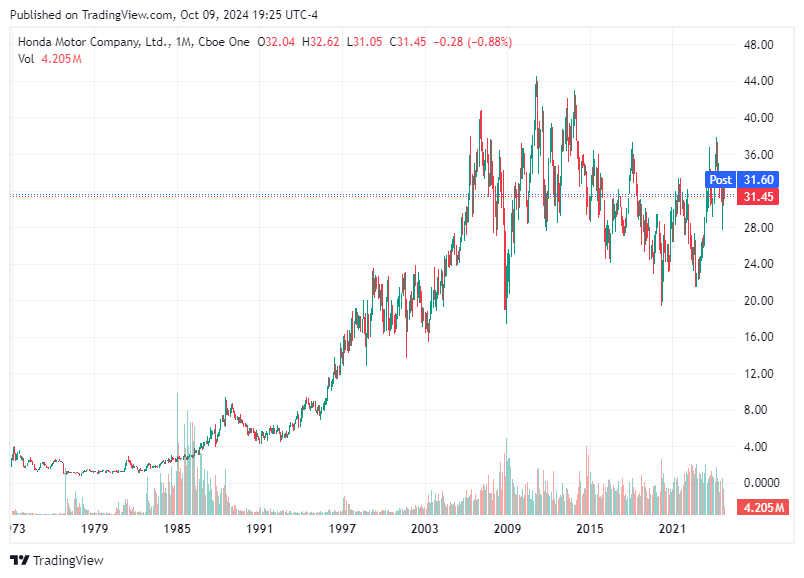Honda Recalls Nearly 1.7 Million Vehicles Over Steering Safety
Honda's Major Recall: Steering Safety Concerns Affecting 1.7 Million Vehicles.

Disclaimer: The information presented in this article is intended for informational purposes only and should not be considered as legal, financial, or professional advice. Readers are encouraged to consult relevant professionals or authorities for advice specific to their situation.
Honda, in conjunction with the National Highway Traffic Safety Administration (NHTSA), has announced a recall of nearly 1.7 million vehicles in the United States. This recall is a response to a newly discovered issue within the steering gearbox assembly that could potentially increase the risk of accidents by making steering more challenging.
Understanding the Recall
At the heart of this recall is a defect in the steering gearbox assembly. This component plays a vital role in the vehicle's ability to steer efficiently. According to reports, the gearbox may have been manufactured improperly, leading to excessive internal friction. This friction can manifest as increased difficulty in steering, known as "sticky" steering, which poses a considerable risk to driver control and, by extension, road safety.
The affected models span across years and include popular vehicles such as the Honda Civic, CR-V, HR-V, and certain Acura Integra models. Specifically, the recall targets:
Acura Integra hatchbacks: Model years 2023 through 2025
Integra Type S hatchbacks: 2024 or 2025
Honda Civic vehicles: 2022 through 2025
Civic Hybrids: 2025
Civic Type R: 2023 through 2025
Honda CR-V SUVs: 2023 through 2025
CR-V Fuel Cell electric vehicles: 2025
CR-V Hybrids: 2023 through 2025
Honda HR-V SUVs: 2023 through 2025
The Nature of the Defect
The steering defect appears to originate from the worm wheel, a part integral to the gearbox assembly. The worm wheel's manufacturing issues reportedly began causing friction, which can lead to a momentary sticking sensation when the steering wheel is turned. Drivers might also notice abnormal noises coming from the steering system. While only about one percent of the recalled vehicles are believed to be affected, the potential danger necessitated immediate action.
Since 2021, Honda has received over 10,000 warranty requests related to this "sticky" steering problem. However, it wasn't until 2022 that the company initiated a formal investigation. The manufacturing process was subsequently revised to prevent future occurrences. Despite the volume of complaints, there have been no reported injuries or fatalities linked to this specific defect. In response to these findings, Honda has taken proactive measures to ensure the safety of its customers. Owners of the affected vehicles have been or will be notified to bring their cars to authorized dealerships for inspections and necessary repairs at no cost. This recall reflects Honda's commitment to addressing safety concerns promptly, while ensuring minimal inconvenience to vehicle owners.
The NHTSA has been actively involved in overseeing the recall process, ensuring that the necessary steps are taken to rectify the issue. Their partnership with Honda highlights the importance of regulatory oversight in maintaining vehicle safety standards. Such collaborations are crucial in identifying potential risks and implementing timely solutions.
Consequences for Vehicle Owners
For vehicle owners, the recall may come as an inconvenience, but it is essential for ensuring their safety on the road. The corrective measures involve a thorough inspection of the steering components and, if necessary, replacement of the faulty parts. Owners are encouraged to respond promptly to recall notifications and schedule repairs as soon as possible.
This recall also highlights the importance of staying informed about vehicle recalls and understanding their potential impact. Vehicle owners should regularly check for recall notices and be aware of the steps they need to take in response. In this digital age, accessing such information has been made easier via online platforms where VIN numbers can be checked against active recalls. Automotive recalls are not uncommon and are part of a broader framework to safeguard public safety. They serve as critical reminders of the complexities involved in vehicle manufacturing and the importance of rigorous quality control processes. While recalls may cause temporary inconvenience, they also demonstrate manufacturers' accountability and commitment to consumer safety.
In recent years, the automotive industry has faced increased scrutiny over safety standards, prompting manufacturers to adopt more stringent quality control measures. Such efforts are essential in maintaining consumer trust and ensuring the longevity of the brand's reputation. For Honda, this recall could serve as a catalyst for further improvements in manufacturing practices and safety protocols. The recall of nearly 1.7 million Honda vehicles due to steering safety concerns is a major step towards addressing a potentially dangerous defect. While the inconvenience to vehicle owners is acknowledged, the priority remains the safety and well-being of drivers and passengers. Through collaborative efforts between Honda and regulatory bodies like the NHTSA, effective solutions are being implemented.
As vehicle technology continues to evolve, manufacturers must remain vigilant in identifying and rectifying defects that could compromise safety. This recall serves as a reminder of the importance of ongoing vigilance and the collaborative efforts required to maintain safety standards across the automotive industry.
Disclaimer: This article is meant to inform and does not replace professional advice or guidance. Readers should consult with relevant authorities or experts for specific advice related to their situation.
We are working endlessly to provide free insights on the stock market every day, and greatly appreciate those who are paid members supporting the development of the Stock Region mobile application. Stock Region offers daily stock and option signals, watchlists, earnings reports, technical and fundamental analysis reports, virtual meetings, learning opportunities, analyst upgrades and downgrades, catalyst reports, in-person events, and access to our private network of investors for paid members as an addition to being an early investor in Stock Region. We recommend all readers to urgently activate their membership before reaching full member capacity (500) to be eligible for the upcoming revenue distribution program. Memberships now available at https://stockregion.net


